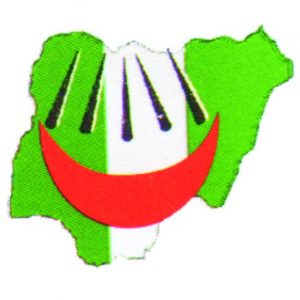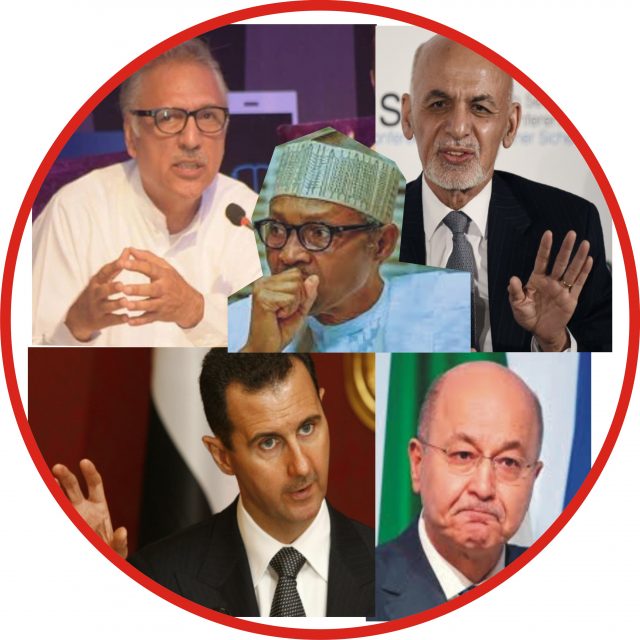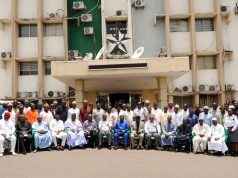… what a parody and persiflage on education!
The word leadership /ˈliːdəʃɪp/ according to Oxford definition is the action of leading a group of people or an organization. It is associated to words like headship, directorship, direction, governorship, governance, administration, jurisdiction, captaincy, superintendency, control, ascendancy, command, power, mastery, domination, dominion, sovereignty etc. as a matter of definition, leadership could said to be the art of motivating a group of people to act toward achieving a common goal. In a business setting, this can mean directing workers and colleagues with a strategy to meet the company’s needs. This leadership definition captures the essentials of being able and prepared to inspire others. Effective leadership is based upon ideas (whether original or borrowed), but won’t happen unless those ideas can be communicated to others in a way that engages them enough to act as the leader wants them to act. Put even more simply, the leader is the inspiration for and director of the action. They are the person in the group that possesses the combination of personality and leadership skills to make others want to follow their direction. 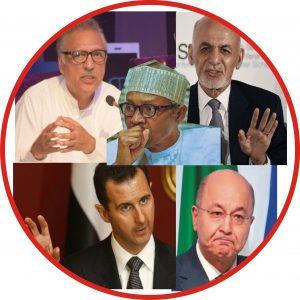
According to Lisa Cash “A leader is the one, who knows the way, goes the way and show the way”. Mann Hanson stipulates that Leadership is the ability to guide others without force into a direction or decision that leaves them still feeling empowered and accomplished. LisaHaisha.com, opines that great leaders don’t set out to be a leader. They sat out to make a difference. It’s never about the role always about the goal but Warren Bennis says leadership is the capacity to translate vision to reality.
Plato’s assertion that there will be no end to the troubles of the state or indeed of humanity until philosophers become kings or until those we now call kings really and truly become philosophers connotes that the more educated the better the leader. The return to having a more educated leader comes from the assumption that more highly educated leaders are also better citizens and more likely to operate in the broader public interest. It is a universal truth that Educational attainment has a large and statistically significant effect on voters’ participation and support for the freedom of speech and additional schooling increases the quality of civic awareness of the leader in question.
Viewing leadership as an expression of responsible citizenship goes back to Plato and Aristotle. For Plato, a major concern is the possibility that leadership could degenerate if the leader does not separate his personal interests from the welfare of those he governs. In addition, intelligence is central to the Platonic view of leadership, so the idea that more educated citizens could be better leaders would come as no surprise. However, the link between education and leadership need not be causal. In the economics literature, there is a general concern with ability bias in the sense that more able people seek higher levels of education than less able people in order to signal their ability to future employers. Good leadership from the educated desk then, is essentially about being an adept and versatile performer, responding to the needs and wants of your followers and giving them, more than anything, a sense of security.
As a matter of fact, it is quite ironical, incomprehensible, unintelligible, indecipherable, incoherent, impenetrable, unfathomable, inexplicable, inscrutable, baffling, bewildering, mystifying, puzzling, confusing, perplexing, abstruse, obscure, esoteric, recondite, Delphic, complicated etc that the recent published Global Terrorism Index (GTI) for 163 countries revealed the top five most insecure states as being led by high profiled leaders. I am talking of Leaders with super academic pedigree and global corporate experience. Among the major functions of modern government are foreign diplomacy, protection and defense, maintenance of domestic tranquillity, administration of justice, provision of public goods and services, promotion of economic growth and development, and the operation of social-insurance and social-welfare programs. But I all this the most basic, elemental, essential, indispensable, intrinsic and substratal duty of a government is to protect its people. The government protects citizens from each other by organizing police to enforce the law. It also protects by defending the country from outside forces. For this purpose, most governments are in charge of creating and commanding a military that can repel invasions or even fight for the country’s interests abroad. Even libertarian thinkers, who believe governments should have very little power, usually consider protection and defense to be normal government duties. An insecure nation is a failed nation.
The most insecure nation in the world according to the latest global terrorism index is Afghanistan is being led by Prof Ashraf Ghani who was elected on 21 September 2014. An anthropologist by education, he previously served as Minister of Finance and the Chancellor of Kabul University. Before returning to Afghanistan in 2002, Ghani was a professor of anthropology at numerous institutions (mostly Johns Hopkins University), and later started working with the World Bank. As the Finance Minister of Afghanistan between July 2002 and December 2004, he led Afghanistan’s attempted economic recovery after the collapse of the Taliban government. 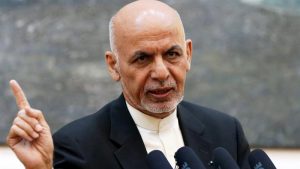
The-Afghan-government-is-failing-to-deliver-on-its-promises
He is the co-founder of the Institute for State Effectiveness, an organization set up in 2005 to improve the ability of states to serve their citizens. In 2005 he gave a TED talk, in which he discussed how to rebuild a broken state such as Afghanistan. He is a member of the Commission on Legal Empowerment of the Poor, an independent initiative hosted by the United Nations Development Programme. In 2013 he was ranked 50th in an online poll to name the world’s top 100 intellectuals conducted by Foreign Policy magazine and second in a similar poll run by Prospect magazine. Ghani was re-elected when the final results of the 2019 Presidential elections were announced after a long delay on 18 February 2020.
Iraq, the second worst and most insecure country of the world is being led by Dr Barham Salih the eighth and current President of Iraq. He has a Bachelor’s degree in Civil Engineering and Construction from the Cardiff University in 1983. He continued to study and obtained a Doctorate degree in Statistics and Computer Applications in Engineering from the University of Liverpool in 1987. 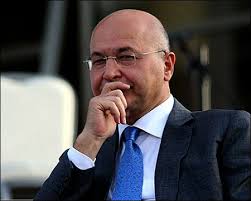
Barham Salih joined the Patriotic Union of Kurdistan (PUK) in late 1976 where he became a member of the PUK department of Europe, and was in charge of PUK foreign relations in London. He was elected a member of the PUK leadership at the first party conference when Iraqi Kurdistan was liberated from the Ba’ath Party following the first Gulf War. He was assigned the task of heading the PUK Office in the United States.
After the fall of the Baathist regime, he became Deputy Prime Minister in the Interim Iraqi Government (in mid-2004), Minister of Planning in the Transitional Government (in 2005), and Deputy Prime Minister in the elected Iraqi Government (Nouri al-Maliki’s Cabinet) in charge of the economic portfolio and Head of the Economic Committee. Representing the Iraqi Government, he launched the International Compact with Iraq – an initiative of mutual commitment between Iraq and the international community to help Iraq in meeting its obligations of “building a prosperous, democratic and federal country, in peace with itself and with the region and the world”.
Salih appeared on The Colbert Report on 10 June 2009, broadcast from Baghdad, and was interviewed by the host. He praised the U.S. military for sending troops into Iraq, and acknowledged that many Kurds desire independence. He is the former Prime Minister of the Kurdistan Region and a former deputy prime minister of the Iraqi federal government. He was elected President of Iraq on 2 October 2018.
The 3rd in the list is Nigeria led by Muhammadu Buhari GCFR who came into office since 2015. He is a retired military general of the Nigerian Army and previously served as military head of state from 1983 to 1985, after taking power in a military coup d’état. The term Buharism is ascribed to the conservative right wing policies of his military regime. Upon assumption of office, Buhari stated that he takes responsibility for anything over which he presided during his military rule, and that he cannot change the past. He described himself as a “converted democrat”. He unsuccessfully ran for the office of President of Nigeria in the 2003, 2007, and 2011 general elections. In December 2014, he emerged as the presidential candidate of the All Progressives Congress for the March 2015 general elections. Buhari won the election, defeating the incumbent President Goodluck Jonathan. This marked the first time in the history of Nigeria that an incumbent president lost to an opposition candidate in a general election. He was sworn in on 29 May 2015. In February 2019, Buhari was re-elected President, defeating his closest rival Atiku Abubakar by over 3 million votes.
Buhari to a Fulani family in Daura, Katsina State, to his father Mallam Hardo Adamu, a Fulani chieftain, and his mother Zulaihat. He is the twenty-third child of his father. He was raised by his mother, after his father died when he was about four years old.
From 1978 to 1979, he was Military Secretary at the Army Headquarters and was a member of the Supreme Military Council from 1978 to 1979. From 1979 to 1980, at the rank of colonel, Buhari (class of 1980) attended the US Army War College in Carlisle, Pennsylvania, in the United States, and gained a Masters Degree in Strategic Studies. Upon completion of the on-campus full-time resident program lasting ten months and the two-year-long, distance learning program, the United States Army War College (USAWC) college awards its graduate officers a master’s degree in Strategic Studies. Other roles include:General Officer Commanding, 4th Infantry Division, August 1980 – January 1981, General Officer Commanding, 2nd Mechanised Infantry Division, January 1981 – October 1981, General Officer Commanding, 3rd Armed Division Nigerian Army, October 1981 – December 1983. In 1977, when the Nigerian National Petroleum Corporation was created, Buhari was appointed as its Chairman, a position he held until 1978. Then he became Head of State (1983–85)
The 4th in the list of the most insecure nationas of the world is Syria led by Dr Bashar Hafez al-Assad a Syrian politician who has been the President of Syria since 17 July 2000.
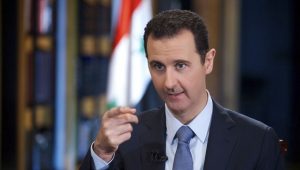
In addition, he is commander-in-chief of the Syrian Armed Forces and Regional Secretary of the Arab Socialist Ba’ath Party’s branch in Syria. His father, Hafez al-Assad, was also President of Syria from 1971 to 2000. Born and raised in Damascus, Assad graduated from the medical school of Damascus University in 1988 and began to work as a doctor in the Syrian Army. Four years later, he attended postgraduate studies at the Western Eye Hospital in London, specialising in ophthalmology. In 1994, after his elder brother Bassel died in a car crash, Bashar was recalled to Syria to take over Bassel’s role as heir apparent. He entered the military academy, taking charge of the Syrian military presence in Lebanon in 1998. On 10 July 2000, Assad was elected as President, succeeding his father, who died in office a month prior. In the 2000 and subsequent 2007 election. On 16 July 2014, Assad was sworn in for another seven-year term after winning another non-competitive, non-democratic election.
The fifth and last for our analysis in this edition is Pakistan led by Arif-ur-Rehman Alvi serving as the 13th and current President of Pakistan sworn into office since 9 September 2018. He was a member of the National Assembly of Pakistan from June 2013 to May 2018 and again from August to September 2018. A founding member of Pakistan Tehreek-i-Insaf (PTI), Alvi was elected as President of Pakistan on 4 September 2018 following the presidential election. 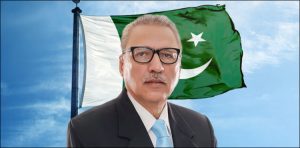
His father, Habib-ur-Rehman Elahi Alvi, was a dentist in India who migrated to Karachi after the establishment of Pakistan, and opened a dental clinic in the Saddar Town. His father became politically affiliated with Jamaat-e-Islami Pakistan. According to the website of Pakistan Tehreek-e-Insaf, Alvi’s father was a dentist of Jawaharlal Nehru. After his father started a campaign against compulsory bible classes, he was expelled from Karachi Grammar School, he completed his early education in Karachi, and moved to Lahore in 1967 for education in dentistry. He received a Bachelor of Dental Surgery degree from De’Montmorency College of Dentistry. He completed his master’s degree in prosthodontics from the University of Michigan in 1975. He received a master’s degree in orthodontics in 1984 from the University of the Pacific in San Francisco, California. After returning to Pakistan, he started practicing dentistry and setup Alvi Dental Hospital.
In 1987, he became Chairman of the Third Pakistan International Dental Conference. He became Patron of the Fifth Pakistan International Dental Conference. In 1997, Alvi became a Diplomate of the American Board of Orthodontics. He prepared the constitution of the Pakistan Dental Association and went on to become as its president. He also served as Chairman of the 28th Asia Pacific Dental Congress. He served as Dean of the Faculty of Orthodontics of the College of Physicians and Surgeons Pakistan. In 2006, he was elected as the President of Asia Pacific Dental Federation. The next year, he was elected as a Councillor of the FDI World Dental Federation.
In 1988, he quit JI and left politics. According to Alvi, he left the party because he had become disillusioned with their narrow focus on politics and had “always felt honest leadership is the real solution to Pakistan’s problems”
He was elected to the National Assembly of Pakistan as a candidate of PTI from Constituency NA-250 (Karachi-XII) in the 2013 Pakistani general election. He was re-elected to the National Assembly as a candidate of PTI from Constituency NA-247 (Karachi South-II) in the 2018 Pakistani general election. On 18 August 2018, he was nominated by PTI as its candidate for the office of President of Pakistan. On 4 September 2018, he was elected as 13th President of Pakistan in the 2018 Pakistani presidential election replacing Mamnoon Hussain
The failure of this great icons of good education in government has made to consider the discuss of a school of thought who argues that Education cannot change personality. That’s how it’s always been. Maybe we could have a different process for the implementation of the wishes of people. Leading is obscene and reminiscent of the days of kings. There are many stages in the so called leadership and no one person is best at all the stages. Thus leading often fails because it’s a dumb concept. Leading should be about coordinating, but there needs to be a process, a pool of ideas, a decision making process (vote is too retarded a system) and implementation and testing stage. The whole point is that leading is outdated as it tries to bundle too many qualities in one person.
The school went further to say that one of the primary reasons why Educated People do not become Great Leaders is due to their Close mindedness and rigidity. These People always go mostly by the book based on what they have learned and try to apply the past Principles always. They have less flexibility and always afraid to take major risks. They believe the Instincts less and Intuition is never their cup of Tea. They will always go by Concrete Calculations and will hold themselves back if they are not close to targets. There is also an Embarrassment factor which always clings to them considering the education backdrop.


